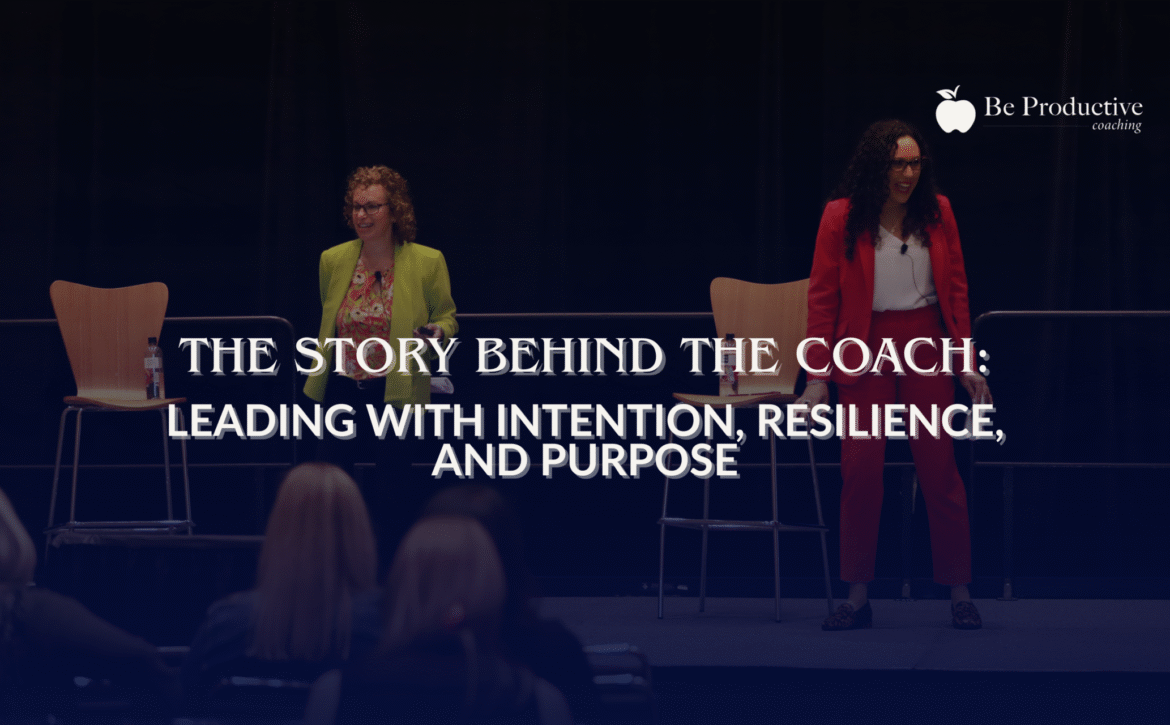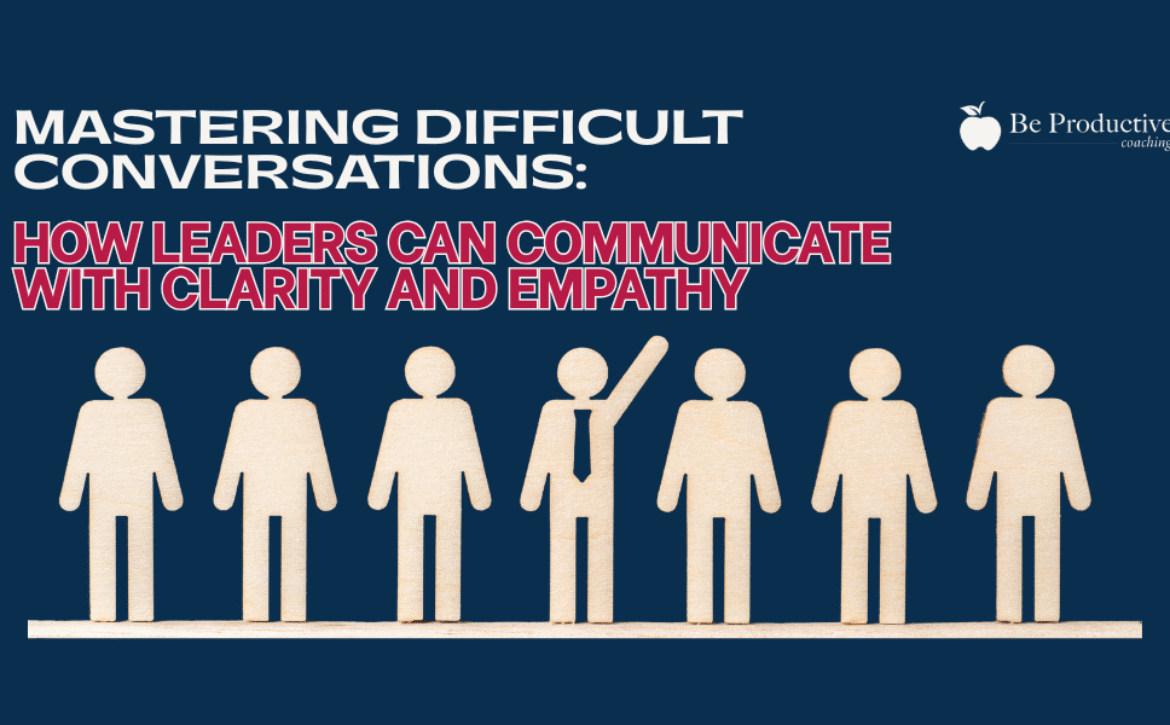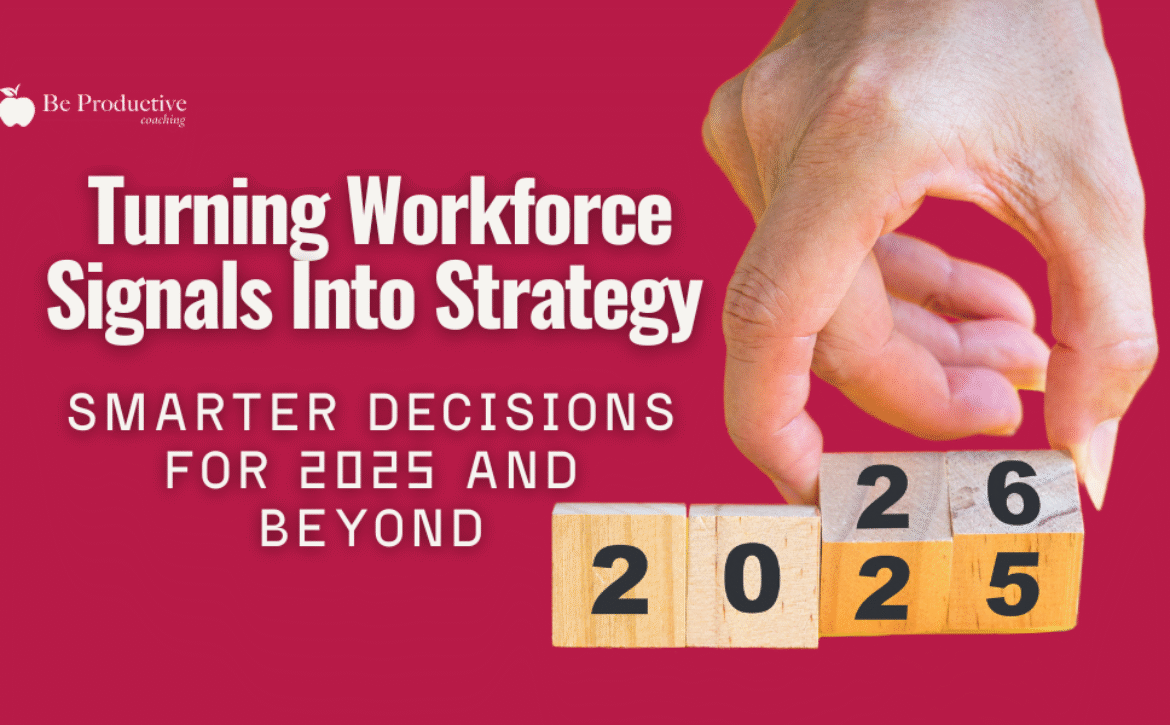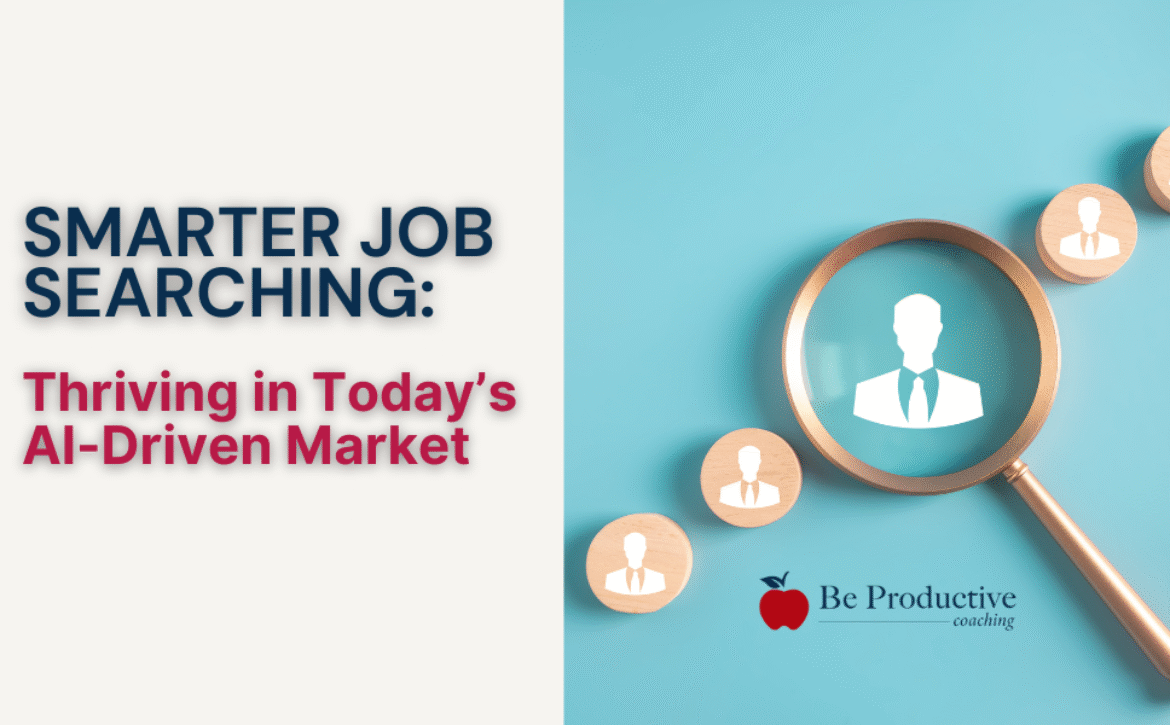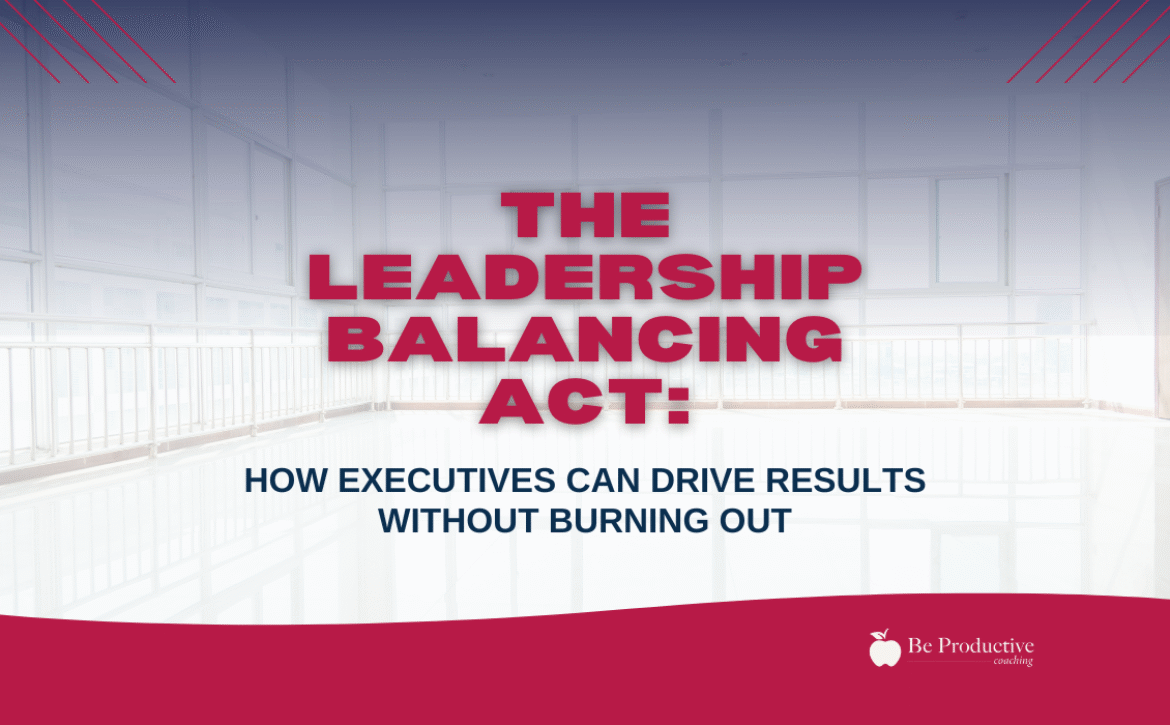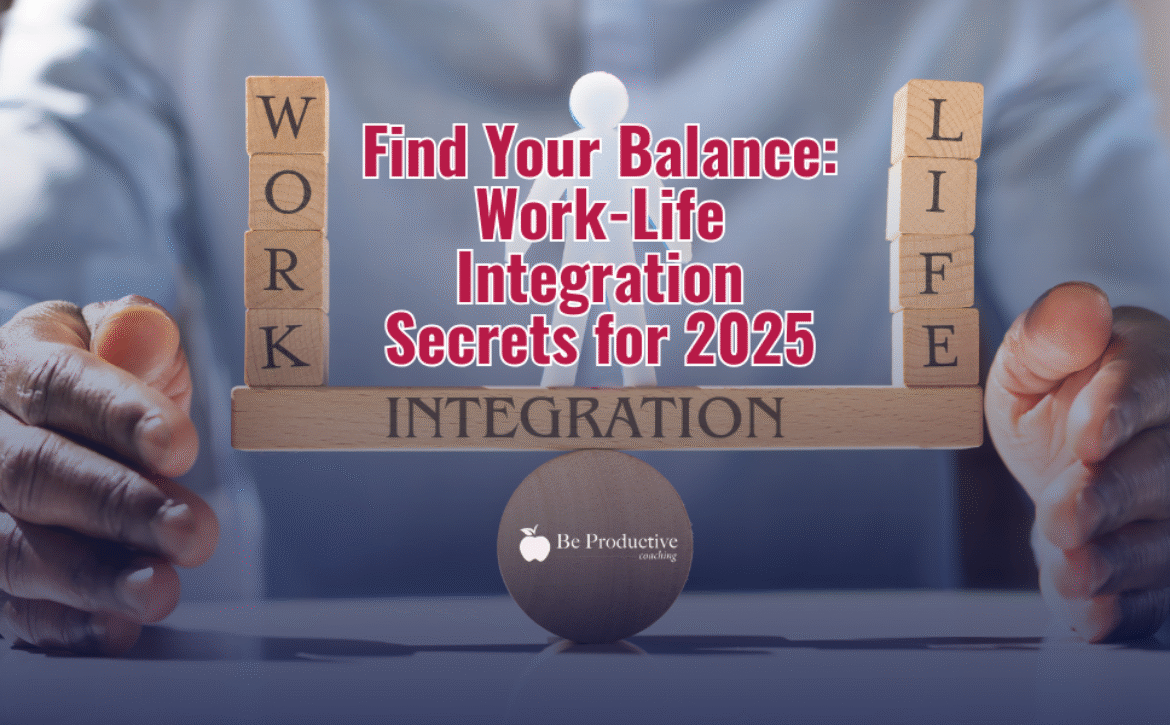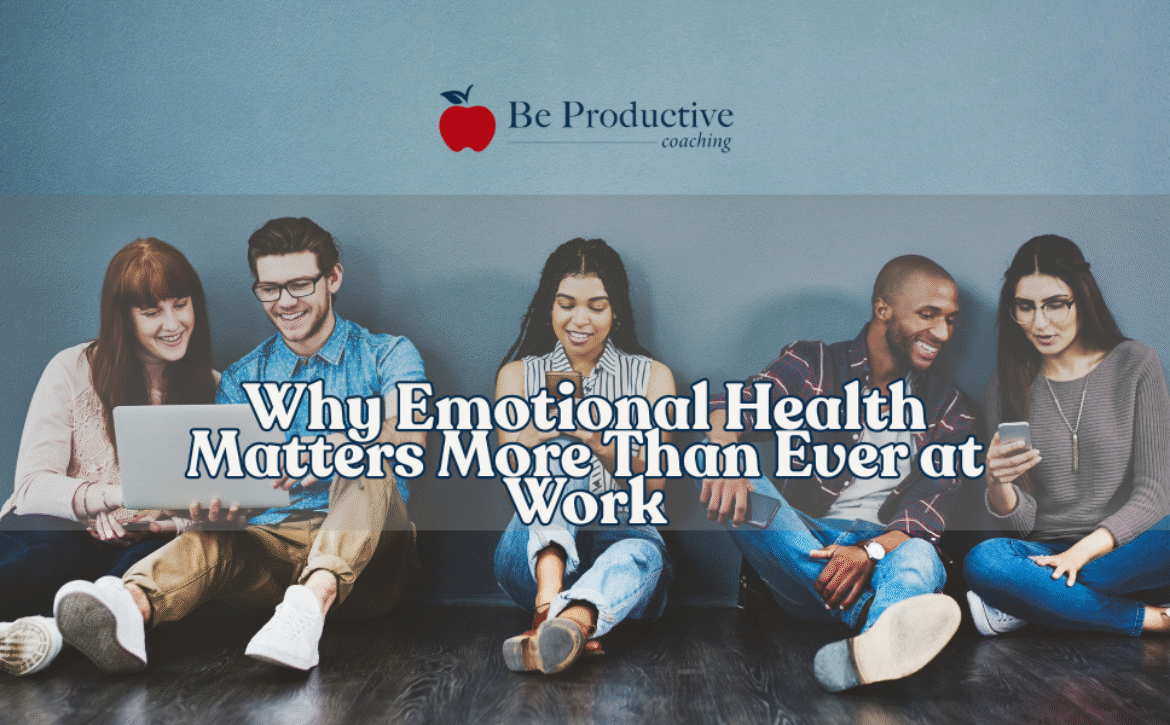The Story Behind the Coach: Leading with Intention, Resilience, and Purpose
The Story Behind the Coach: Leading with Intention, Resilience, and Purpose
I want to take you behind the scenes today, beyond the polished photos, the client wins, and the LinkedIn banner, into the journey, the choices, and the values that shape how I lead, coach, and serve. My hope is that by sharing this, you’ll see more of your story reflected in it, the risks, the pivots, the doubts, and ultimately, the clarity that’s waiting on the other side.
In the VoyageMIA interview, readers get a glimpse of how I got here: my background in corporate hospitality, the moment I realized I needed to shift, and how I built Be Productive Coaching around the intersection of career strategy, mindset, and purpose. I’ll never forget the point where I looked at my life and asked, “Is this all there is?” The answer was no, and that “no” became the invitation to build something more aligned, more meaningful, and more impactful.
Today, I want to share what I’ve learned since then, the principles that sustain me, the truths that guide my coaching, and how you can use them to lead your life and career with greater intentionality and resilience.
From Corporate to Calling: The Shift That Changed Everything
In the VoyageMIA feature, I spoke about my two decades in leadership roles in hospitality, resorts, and global hotel brands. At some point, I realized that while I was good at climbing, I no longer felt fulfilled by just climbing. That internal disquiet, that sense of something missing, is a signal. And I believe it’s one of the most precious turning points in any high-achiever’s life. When you face it, you have a choice.
You can stay on autopilot and trade your inner peace for external success, or you can lean into the discomfort, listen more deeply, and choose a path that honors both your gifts and your wellbeing.
For me, that meant stepping from corporate roles into coaching, strategy, and mindset work. It meant building Be Productive Coaching as the container in which I could bring together my experience, my convictions, and my desire to help others not just move up, but move toward alignment.
If you’re reading this and feeling that restlessness that whispers that your work no longer fits you the way it once did I want you to know: that’s not a curse. It’s an invitation.
The Core Values That Anchor Me
As I shared in VoyageMIA, part of building a coaching business was doing the internal work defining the values, the boundaries, and the ethos that would guide this venture. These are not mere statements on a website. They are the filters I use in decisions, the guardrails in storms, and the compass when things feel uncertain.
Here are a few of those core principles that I live, coach, and teach.
Integrity over Image
Too often, leaders hide behind a polished exterior while carrying unrest inside. I’ve committed to showing up with honesty, admitting when I don’t have perfect answers, sharing my learning, and owning my flaws. That vulnerability invites trust and growth, both in me and in those I serve.
People before platforms
Platforms, awards, and visibility fade. What lasts is how you treat people, how you empower them, and whether you prioritize their growth. My greatest joy is in transformation stories when someone I coach steps into clarity, confidence, and purpose.
Energy is nonrenewable
We talk about productivity, workflows, and strategies, but the engine behind all that is your energy, your mental state, and your capacity. I learned, sometimes the hard way, that you cannot sustain excellence if your inner ecosystem is crumbling. So I guard my rest, boundaries, and reflection time because everything flows from that.
Growth with grace
Ambition doesn’t have to be frantic. Purpose doesn’t require burning out. I champion a rhythm of growth that includes rest, recalibration, and space for reflection. When we build with grace, we last.
Purpose as North Star
In the interview, I shared that even as a seasoned professional, I had to recalibrate my why, and I continue doing so as life unfolds. Your purpose isn’t static. As you grow, your definition of success evolves. The question is: are you listening?
These values have not only shaped how I lead my business, but they’re also what I guide my clients to surface, internalize, and leverage as they build their careers, teams, and legacies.
Lessons from the Journey: What I Learned Moving Through Transitions
Transition is rarely linear. Here are five lessons I’ve lived after that moment of decision, lessons I wish someone had told me earlier.
Leap anyway
When you stand at the edge, ready to leave what’s familiar, the fear is loud. But often, the leap is a call from your deeper self. I didn’t get every detail worked out first. I leaned into the discomfort, trusted my vision, and learned along the way. The momentum came when I committed.
Build Bridges, Not Big Leaps
While the “leap” sounds dramatic, some of the best transitions are built gradually. I didn’t burn my corporate bridges without building capacity for coaching, networking, and learning first. That bridge phase gave me resilience when storms came.
Reinventing your Identity is Part of The Path
The professional you were is not the professional you’re meant to become. In stepping into coaching, I had to shed parts of my identity, comfort, and approval. That means grieving what was and embracing the unfamiliar. But that’s where growth lives.
Stay in service of your vision, not of validation
It’s tempting to chase awards, recognition, and benchmarks, but when your north star is validation, your path will feel hollow. I refocused on the people I wanted to help, the transformations I believed in, and the impact I wanted. That realignment kept me steady during peaks and valleys.
The inner work never ends
Even now, I guard my mindset, track my saboteur voices, and refresh my practices. Coaching others forces me to stay on my own journey. I still journal, meditate, recheck my alignment, and lean into spiritual rest because outer growth must reflect inner integrity.
What This Means for You: Applying the Story to Your Career
You may not be in transition now. You may feel called to leadership. You may sense burnout, stagnation, or misalignment. Whatever your context, here are eight practices to borrow from my journey and integrate into yours.
Practice 1: Journal your “why” annually
Don’t assume your mission stays the same. At least once a year or more often, sit down and ask: Why am I doing this? What gives me energy, purpose, and meaning? Let your career direction respond to this check-in.
Practice 2: Audit your alignment quarterly
Pick areas of your life, work, relationships, health, rest,t and rate them on how aligned they feel with your values. If a domain is off, let it be the starting place of your shift.
Practice 3: Create “transition trenches”
In those spaces between roles, projects, and identities, use the trenches to reflect, learn, and prepare. Resist the urge to rush forward before you’ve given space for integration.
Practice 4: Define your non-negotiables
For me, rest, reflection, and boundary margins are non-negotiables. For you, it might be creative time, space for family, or integrity in how you operate. Write those non-negotiables down; they become your anchors.
Practice 5: Curate your inner circle
Who you surround yourself with matters. During transition, surround yourself with encouragers, truth-tellers, and coaches who mirror what you’re calling forward. Their belief fuels your forward motion.
Practice 6: Schedule the “unproductive”
Ambitious people often neglect “unproductive” moments pauses, emptiness, creativity rest. But those spaces are where deep insight, renewal, and innovation emerge.
Practice 7: Lean into mentorship
Just as I’ve benefited from coaches, mentors, and guides, you deserve support in your path. Investment in guidance doesn’t mean failure; it accelerates wisdom and sustainability.
Practice 8: Refrain “failure” as data
Every move, misstep, or plateau is data, not a verdict. When something doesn’t go as planned, ask: What does this teach me? Where is the redirection? That mindset shift is key to resilience.
How My Coaching Philosophy Reflects This Journey
If you’ve ever worked with me or encountered Be Productive Coaching, you’ll see these elements embedded in my approach. Let me share how.
Holistic integration
I don’t separate mindset from strategy. Career growth isn’t just about resumes and networks. It’s about inner clarity, mental fitness, and structural design. So I combine coaching, branding, mindset, and tactical action.
Deep curiosity
I believe every client has unseen potential. My role is to ask the questions that unravel limiting beliefs, surface hidden desires, and reveal a path that feels both ambitious and graceful.
Accountability and compassion
Push and pause. Discipline and rest. Structure and spaciousness. That’s how I show up in coaching. I will challenge your growth edges, but I’ll also challenge you to care for yourself along the way.
Adaptive frameworks
I don’t sell one-size-fits-all solutions. Your strengths, rhythm, context, and vision guide how we customize the tools, cadence, and strategy we use together. Lifelong learner
Because of what I’ve lived, I commit to staying curious in coaching, leadership, and mindset so that I bring my best, evolving self to every client.
Ready for What’s Next? Turn Your Longing into Action
If before reading this, you felt something stirring inside you, a yes, a restlessness, a longing, I want to invite you to take that seriously.
You don’t have to make your leap overnight. You can start with small practices: reflection, boundary-setting, prototyping, and lens-shifting.
If you’re ready to accelerate with support, I’d be honored to walk that path with you. In our work, we’ll discover your deepest “why,” clarify your next steps, and build the structure, mindset, and resilience you need to make it real.
The VoyageMIA interview captured who I was at a point in time. But every day, I show up as someone still learning, still growing, and always leaning toward what matters most: meaning, dignity, and aligned action.
Thank you for being here. Thank you for taking space for your next step.
Let’s keep building not just toward another title or milestone, but toward a life and legacy you’re proud to carry.



